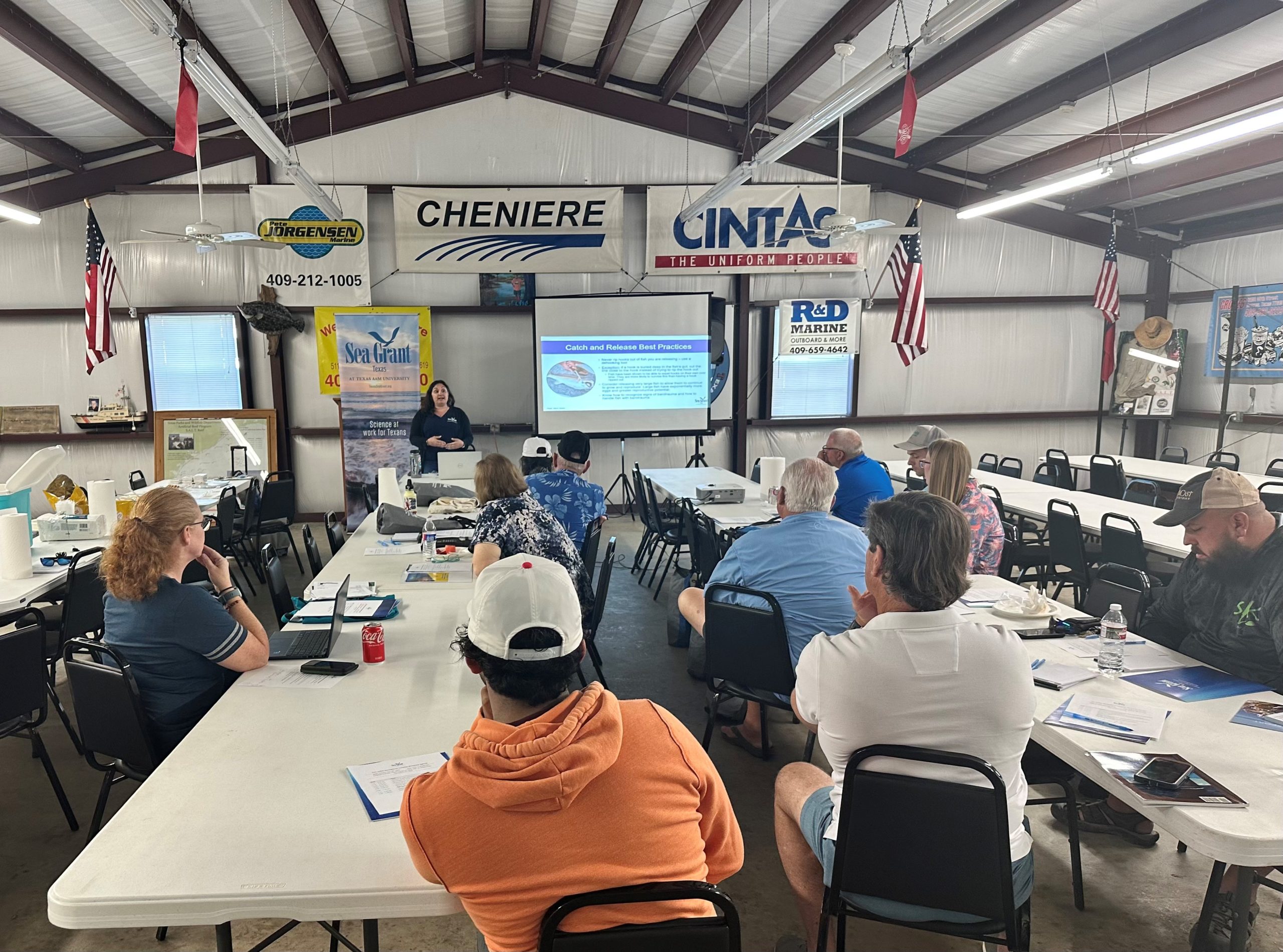
What we do
Texas Sea Grant’s team is a dedicated group of professionals working to strengthen Texas’s coastal and marine resources through research, outreach, and education. With expertise in marine science, policy, and sustainability, they partner with communities, policymakers, and stakeholders to tackle issues like coastal conservation, fisheries, environmental health, and economic development.
As residents of the coastal areas they serve, team members are closely connected to local industries, governments, and citizens. This on-the-ground presence helps identify pressing needs and ensures that research leads to practical tools and solutions. Through this collaborative, community-driven approach, Texas Sea Grant advances both local priorities and broader coastal challenges.
Texas Sea Grant’s Impact
Texas Sea Grant works at the intersection of science, communities, and the coast to support the long-term sustainability of Texas’s coastal and marine resources. Through research, outreach, and education, we empower Texans to steward their environment, strengthen their economies, and build more resilient communities.
Supporting Coastal Economies
We help sustain the livelihoods that depend on our coast by providing direct support to commercial and recreational fisheries, aquaculture operations, marine-related small businesses, and coastal tourism. Our extension agents and specialists offer technical assistance, workforce development, and business training that allow communities to grow sustainably, adapt to changing conditions, and maximize opportunities in the blue economy.
Strengthening Community Resilience
Coastal Texans face growing challenges, from rising seas and intensifying storms to water quality concerns and development pressures. Texas Sea Grant partners with local governments, emergency managers, and community members to enhance resilience through hazard mitigation, stormwater planning, climate adaptation, and sustainable development strategies. Our programs help reduce risks, support long-term recovery, and promote the use of science-based decision-making to ensure safer, more adaptable coastal communities.
Engaging and Educating Texans
Education and outreach are at the core of our mission. We provide informal, science-based education to students, educators, and the public through workshops, seminars, citizen science programs, and publications. From hosting coastal camps and public events to coordinating the regional National Ocean Sciences Bowl competitions—the Dolphin Challenge and the Loggerhead Challenge—we spark curiosity, encourage stewardship, and build environmental literacy across all ages. Our extension professionals live in the communities they serve, making our outreach responsive, relevant, and impactful.
Research with a Purpose
Texas Sea Grant funds competitive, applied research that addresses the most pressing needs of our coastal and marine environments. We support university-led studies and collaborate with other Gulf of Mexico Sea Grant programs to generate practical solutions in four focus areas: Healthy Coastal Ecosystems, Sustainable Fisheries and Aquaculture, Resilient Communities and Economies, and Environmental Literacy and Workforce Development. Research results are translated into tools, resources, and best practices that directly benefit Texas communities.
To explore current research projects or learn how to apply for funding, visit our Funding Opportunities page or email sgrfp@listserv.tamu.edu with the subject line “Subscribe” to receive announcements directly.
Leadership

Laura Picariello
Director, Texas Sea Grant College Program- lpicariello@tamu.edu
- (979) 845-3902

Christine (Chris) Hale
Director, Extension Corpus Christi, Texas- chris.hale@tamu.edu
- 361-825-6215

Mia Zwolinski
Associate Director, Research Coordinator- mzwolinski@tamu.edu
- (979) 458-0449
